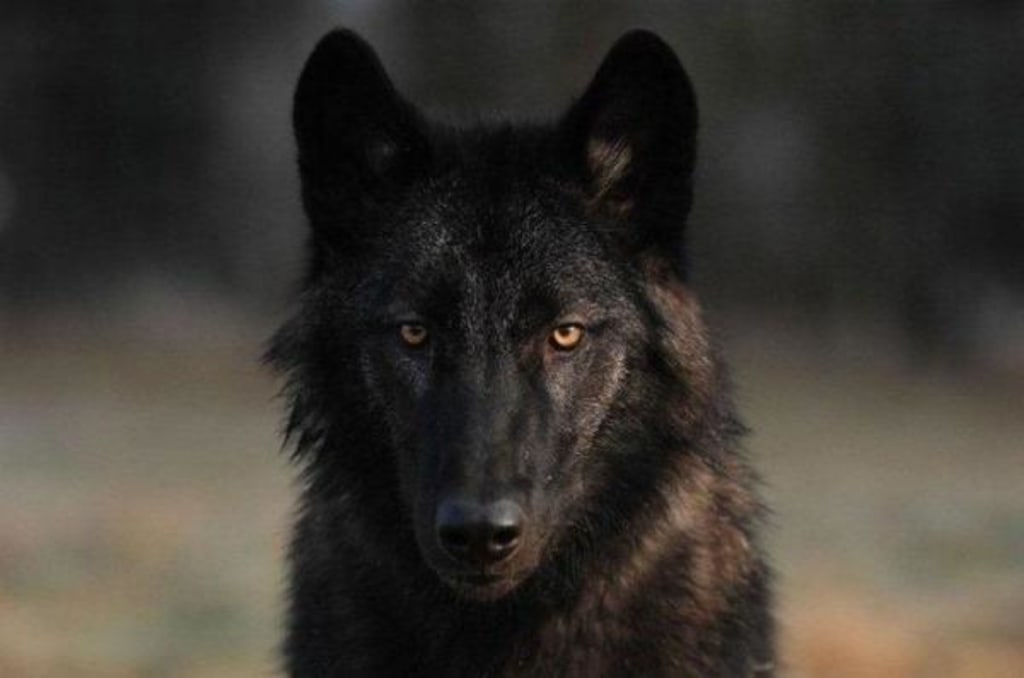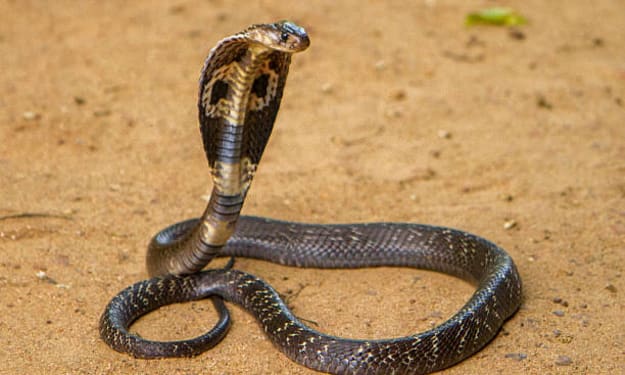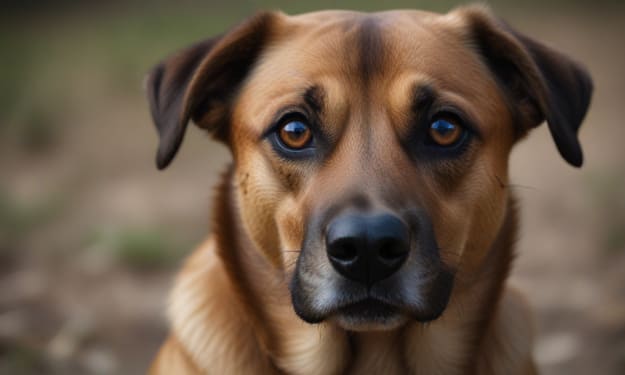
Dog Bread
by Jesse Stone
“Don’t come back ‘till you’ve hayed them hogs,” her voice called hard as the screen door slammed, both sounds of habit at this time of day.
Clay glanced back at her thin silhouette through the battered screen. Her worn white dress translucent against the flickering lamp, though he’d never tell her that. It wasn’t as if new dresses were in the offing, even for her. This would be his 18th spring, and her… what? 36th?
“Or 65th,” he muttered to the moon uncharitably. Hard to tell with hard women, and besides, her voice had started to ring in his ears like a rusty hinge with no oil in sight. A house full of others to bark to, she’d disappeared back into the clapboard box, faded white against the fading light, and Clay stood alone, beneath a pink streaked dome.
They gave him this job because he was newer here than most, and less related than some. He was most likely an orphan, having lost his pa and misplaced his ma, for lack of a better way to tell it.
Thank God family is family, but if that adage was true, an addendum should be tacked on— distant family is distant family. No matter. They’d sent him out with the dog bread, same as every night, and to handle the hogs, who were doubtless safer and happier than him, even with their ultimate demise marked on calendar wall.
He bedded them first because it liked it least. He liked it least because he resented their pink happy family. Iron tines of the heavy pitch fork scraped against the mud and stones as Clay worked up a slick sweat in the crisp air— bang scrape swing, bang scrape swing— and how those piglets looked at him as if he aught to be doing just that. He, a young man coming up in the world, owing these piglets food and shit slinging. This mama and papa pig, so protected, watching their babies grow— all of them knowing what it was to sleep together, eat together, love each other, even to play or pray, in their own piggy way. Clay saw in his minds eye— their fat little tails, fried and crispy, and his hungry ribs pulled tight. He felt half starved but it was still no use— he knew he’d never be able to eat these ham hocks, and as usual, he touched the papa’s head, and bade them good night. Why did he always let those pigs get to him.
The wooden shed door made a Z with its frame, and Clay liked to think of a new Z word every time he went through it. He loved words. Always had, and his pa and ma had indulged it in him, so far as they could find books and lead and paper. “Zanzibar,” he said to the hay bin, and he blew out the hanging lamp, picturing that that faraway land.
Through gray slats in the door, Clay looked at his own part of the world. The land here dotted with forest and fields, creeks and crannies, and promising but capricious crops. His eyes followed the dark horizon line, a wavy congregation of trees in the distance reaching up up to the moon, and a whole milky way glittering back down. Church for the outdoor flocks. Dark had fallen fully and he wasn’t in Africa but Appalachia. With a century of practiced swing, the door opened at Clay’s easy touch, and the night enveloped him.
Swift and silent, bushy tails emerged to circle his legs, one by one until all seven were there; thick winter coats gleamed under the banner sky, and sharp white mouths grinned greetings. Farmers around here fed these dogs, and the dogs minded their fields at night, frolicking ‘round the borderlands, howling out incantations, and pissing a thick circle of their contracted protection.
Clay’s home folks baked two hot round loaves every night, with the scrapings of all days suppers. Aproned females, arms naked and hair pinned up, mixed corn meal with soured milk, and all the leftovers unfit to save, until it made a dough they could kneed with their hands. Once punched and shaped,they opened the belly of the fire bright stove, and popped the pans onto its grate, to sizzle and puff into dog bread. This is what they tithed to the pack. It was half spoiled food, not intended for people, but quite a treat for creatures who hadn’t mastered matches. A deep comfort it was for Clay, as well, who never felt he’d eaten enough, and who’d grown to love its crumbly texture. Even the bits of breakfast eggshell, or carrots from a cleared plate, were a sweet surprise to his senses. The warm feeling of fullness it gave made him able to think clearly, and see what beauty did still shine about him.
He felt guilty taking from the dogs, who he knew were hungry too, and each morning he resolved not to do it, then each evening with the warm bundle at his side, he knew he would share in their supper again. He’d considered just stealing the pig slop instead, since that pig family seemed to have more than enough in life, but he feared it would make him ill, and then again, the dog bread was so warm and good, even if his mother in another life would have likely slapped it out of his hands.
The dogs circled around Clay as he walked them far out into the field before dividing their nights fare, pausing finally near the forest edge, where he kept a pan of rainwater to share.
He wanted so much to just go. Just to walk and keep walking until he was away from here and he bumped into someone who would really love him, or into some place that would hold him safe, or into at least a table that would let him eat his fill. He wanted to walk just to see something other than this dusty farm, and this collection of people who shared his blood but nothing else. But how far could he get in these tattered leather shoes, already mended beyond their original hopes in life? How strong would he march fueled by dog bread, secreted into his mouth just to keep off the full pangs of hunger? Not far. Not far. And who out there might want him? And what out there might hold or feed him? No, better the farmstead you know.
He’d been assured the local preacher would agree, so there was also that.
Settling onto the mossy earth, Clay broke up their communal bread, handing out quarters to each wet snout, and keeping an equal portion for himself. He scooped up the water with his empty hand, before the dogs filled it with crumbs, and sat back to share the meal. Tonight, the water pan reflected a dazzle of stars so yellow-thick, that it seemed to send rays of light back up, flashing bright on animal eyes as they lapped and lingered over their feast.
Because he loved the dogs so well, they brought him little treats. A tattered doll once, which had set him to holler before he checked its pulse. Another time it was a chewed tin can, and often little piles of bones, only half eaten, which he couldn’t help reading into. They’d surely noticed he was pinching their bread.
The big full black dog went by the name Barley, or so Clay assumed, as the neighboring barley field was his favored hunting ground. Barley’s dark eyes looked into Clays and he placed his paw against his forearm. Clay smiled and nudged him back, always flattered for this connection. He’d secretly begun to think of Barley as a possible forest god, but it was a notion, among others, that he kept to himself.
“The sky is outdoing itself tonight,” he told the gang; they looked up at him, and went back to licking their paws. Barley nudged his big head to push Clay until he’d almost toppled over, then gave a low growl when he righted himself and laughed. This was new. Barley advanced, but with only one step, planting his paw where Clay’s seat had just been. Clay looked down at the black wild paw, and saw beneath it something just as black, but far less wild. Positively tame, in fact, it was a notebook. Small, well bound, and covered in soft black leather, with fine blank pages inside. Luminous in the moonlight, the paper shined like the dogs teeth and the gifted bones, just waiting to have any story written upon them. It was so fine a thing in so raw a place, it felt a gift from above. Barley went back to his supper, but Clay didn’t have to go back to anything ever again.
The books pages were blank, all save one. On that page was written this: My boy, you can still be anything.
This is how things can open up— how they can change on a dime. Clay could write his own story,and here was the paper to prove it. Things had begun to happen to him, and he’d been towed under the current of time and circumstance. The sky above shone down on a whole round planet, and his view had honed down to this field, this farm, the dog bread. “I could write myself down the lane, up the river, and anywhere I want,” Clay thought, “and my feet could follow right along, flappy shoes or not.” He thought about choices, and the idea that he had them, on the cool ground, as his elbows sank soft into the moss, and Barley still pawed at his feet.
“I’d lost my way,” he told the others, who lay upon their backs now, in the downy bliss of digestion.
Hadn’t he chosen to share the food he carried? He could have eaten it all, every night. A year of half empty belly had been his choice, even if ignoring the dogs had never really occurred to him. He could have done it, and he had not. Not trapped. Never was. Maybe the world held love too— love even for him, a tall boy with a broad gate, and the soft accent of his mother’s people. Maybe there was real family, even back in that cracker box house. And maybe he’d choose to sleep there tonight, on a cot where, after all, he’d been choosing to sleep up to now. Nothing had changed, and yet everything had. He’d walked out of a cage and returned to what he might write as his first small palace.
A choice paints the whole world, where before it was gray upon gray.
Clay ran his fingers deep into the matt of Barley’s thick fur, and braced his feet to stand. Loose earth chuffed around his heels, and, where had been firm ground, the corner of something soft now sprouted out. Clay blinked, undone by this night, and the digesting dogs blinked too. Easily pulled from its loosened place, the soft foldings of a flour sack cloth, cream muslin with a calico print, filled his hands. This package though, held not flour, but… what? More paper? An evening of fresh slates!
Yes, this was paper too, but all of this was printed on. Printed in the images of currency, and it added up to twenty… thousand… dollars.
Twenty blank pages. Twenty thousand dollars. A thousand thousand stars. A million choices. Clay buttoned the little black book into his shirt pocket, and re-folded the fortune’s muslin wrap. He buried it back down into its bed, it could await him here, and turned toward the bed of his own.
“Heads high, friends,” he encouraged his companions. They stretched around him to begin their nights work, as he was now ending his. “Tomorrow is a new day, and I’ll see you at supper.”
About the Creator
Jesse Stone
Jesse Stone is an artist and maker hailing from the lovely Ozark Hills. Best known for her home-goods business Lewd Linens, Jesse also writes and paints for a national audience upon blue moons. She answers best to her favorite title, Mama.





Comments
There are no comments for this story
Be the first to respond and start the conversation.